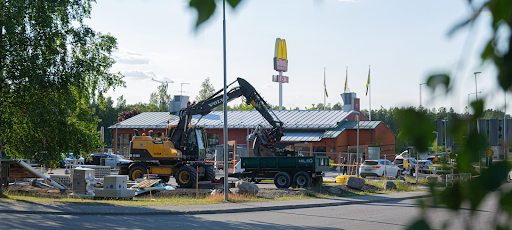Retail construction project management is a complex process that requires careful planning, coordination, and execution to ensure success. Whether it’s building a new store or renovating an existing one, there are six key objectives that project managers need to focus on to deliver a successful outcome.
In this article, we’ll explore each of these objectives in detail and discuss why they are essential for the success of any retail construction project.
1. Budget Management:
One of the primary objectives in retail construction project management is to effectively manage the budget. This involves creating a detailed budget that outlines all costs associated with the project like custom patios, including materials, labor, permits, and any unforeseen expenses.
Project managers must closely monitor spending throughout the project to ensure that it stays within the allocated budget. By effectively managing the budget, project managers can prevent cost overruns and keep the project on track financially.
2. Timely Completion:
Another crucial objective in retail construction project management is to ensure that the project is completed on time. Delays in construction can result in lost revenue for retailers and inconvenience for customers.
Project managers must create a realistic timeline for the project and closely monitor progress to identify any potential delays early on.
3. Quality Control:
Maintaining high-quality standards is essential in Retail Construction Project Management. Retail spaces need to be visually appealing and functional to attract customers and promote sales. Project managers must work closely with contractors and subcontractors to ensure that all work meets the necessary quality standards.
This may involve conducting regular inspections and addressing any issues or deficiencies promptly. By prioritizing quality control, project managers can ensure that the finished retail space meets or exceeds expectations.
4. Stakeholder Communication:
Effective communication is key to the success of any retail construction project. Project managers must maintain open lines of communication with all stakeholders, including clients, contractors, vendors, and regulatory agencies.
This involves providing regular updates on the progress of the project, addressing any concerns or issues that arise, and ensuring that everyone is on the same page.
5. Risk Management:
Retail construction projects are inherently risky, with potential issues ranging from supply chain disruptions to inclement weather. Project managers must identify and assess potential risks early on and develop strategies to mitigate them.
This may involve creating contingency plans, securing insurance coverage, or implementing safety protocols. By effectively managing risks, project managers can minimize disruptions and keep the project on track.
6. Sustainability:
In today’s environmentally conscious world, sustainability is an increasingly important objective in retail construction project management. Project managers must consider the environmental impact of their projects and strive to minimize waste, conserve resources, and reduce carbon emissions.
This may involve incorporating sustainable materials, implementing energy-efficient systems, and pursuing green building certifications.
Conclusion:
In conclusion, retail construction project management is a multifaceted process that requires careful attention to detail and effective coordination. By focusing on the six key objectives outlined in this article project managers can increase the likelihood of success for their retail construction projects.
By prioritizing these objectives, project managers can deliver retail spaces that are not only aesthetically pleasing and functional but also financially viable and environmentally sustainable.
